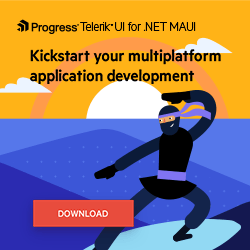Sands of MAUI: Issue #143

Summarize with AI:
Welcome to the Sands of MAUI—newsletter-style issues dedicated to bringing together the latest .NET MAUI content relevant to developers.
A particle of sand—tiny and innocuous. But put a lot of sand particles together and we have something big—a force to reckon with. It is the smallest grains of sand that often add up to form massive beaches, dunes and deserts.
.NET developers are excited with the reality of .NET Multi-platform App UI (.NET MAUI)—the evolution of modern .NET cross-platform developer technology stack. With stable tooling and a rich ecosystem, .NET MAUI empowers developers to build native cross-platform apps for mobile/desktop from single shared codebase, while inviting web technologies in the mix.
While it may take a long flight to reach the sands of MAUI island, developer excitement around .NET MAUI is quite palpable with all the created content. Like the grains of sand, every piece of news/article/documentation/video/tutorial/livestream contributes toward developer experiences in .NET MAUI and we grow a community/ecosystem willing to learn & help.
Sands of MAUI is a humble attempt to collect all the .NET MAUI awesomeness in one place. Here’s what is noteworthy for the week of April 29, 2024:
VS Code Day
.NET MAUI is the evolution of modern .NET cross-platform development stack, allowing developers to reach mobile and desktop form factors from a single shared codebase. With increased stability and a rich ecosystem, there are lots more developers building cross-platform apps with .NET MAUI—many seeking consistent building experiences from Windows/macOS/Linux developer machines.
The answer is Visual Studio Code and developer experiences with VS Code are constantly getting better. VS Code Day is the annual event where developers learn how to elevate development workflows with the latest and greatest features of VS Code—the recent VS Code Day 2024 was packed with content.
Visual Studio Code is the uber-popular lightweight code editor that works seamlessly across Windows/macOS/Linux. While Visual Studio continues to be the rich IDE on Windows, VS Code represents the engineering consolidation of developer tooling across platforms. The lightweight editor brings a rich Extensions ecosystem and provides consistency of developer experiences.
VS Code Day 2024 delved into all things AI. VS Code team and other industry experts spoke on topics like AI-powered programming with GitHub Copilot, building and deploying generative AI apps to the cloud, enhancing C# development experience and more. VS Code is now the preferred cross-platform editor for many .NET developers, and the new .NET MAUI VS Code Extension along with AI advancements promise developer productivity.
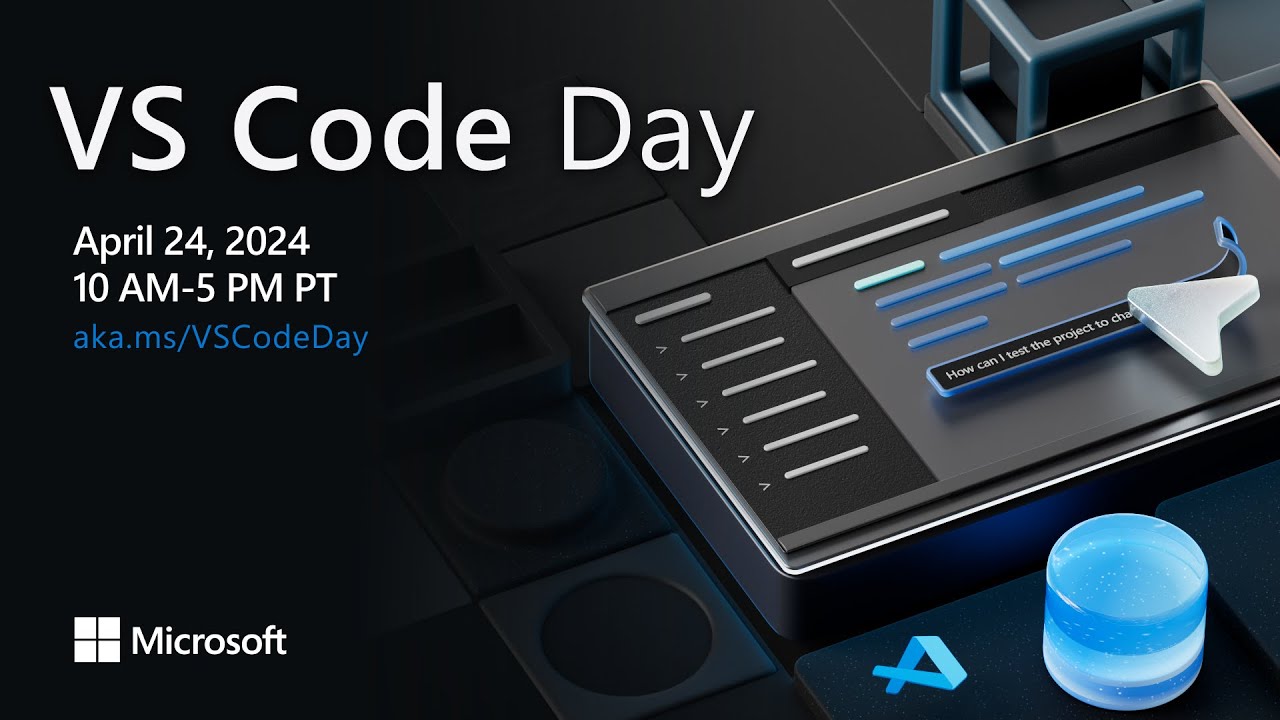
.NET MAUI Community Toolkit Release
The .NET MAUI Community Toolkit is an open-source library serving as a companion to .NET MAUI development, offering developers a rich set of controls, converters and helpers designed to accelerate app development. With a focus on community-driven innovation and developer productivity, the .NET MAUI Community Toolkit has become an indispensable tool for developers looking to enhance .NET MAUI app development. There is fresh new excitement as Gerald Versluis wrote up the announcement—say hello to Version 8 of the .NET MAUI Community Toolkit.
The latest .NET MAUI Community Toolkit has some major upgrades—the much anticipated TouchBehavior, a full rewrite of SnackBar on Windows, Android system navigation bar coloring, bug fixes and more optimizations. The new TouchBehavior provides the ability to interact with any visual element based on touch, mouse clicks or hover events—developers will have it easy to implement long press touch gestures.
The .NET MAUI Community Toolkit GitHub repository has evolved into a dynamic hub of activity, engaging passionate contributors who have collectively pushed the project forward. Developer feedback, suggestions and code contributions have been instrumental in shaping the toolkit into a more powerful and efficient resource for .NET MAUI developers. While .NET MAUI developers will appreciate the latest major version of the .NET MAUI Community Toolkit, Gerald pointed out that upcoming features for the next release are already in the works. Upwards and onwards for developer productivity.
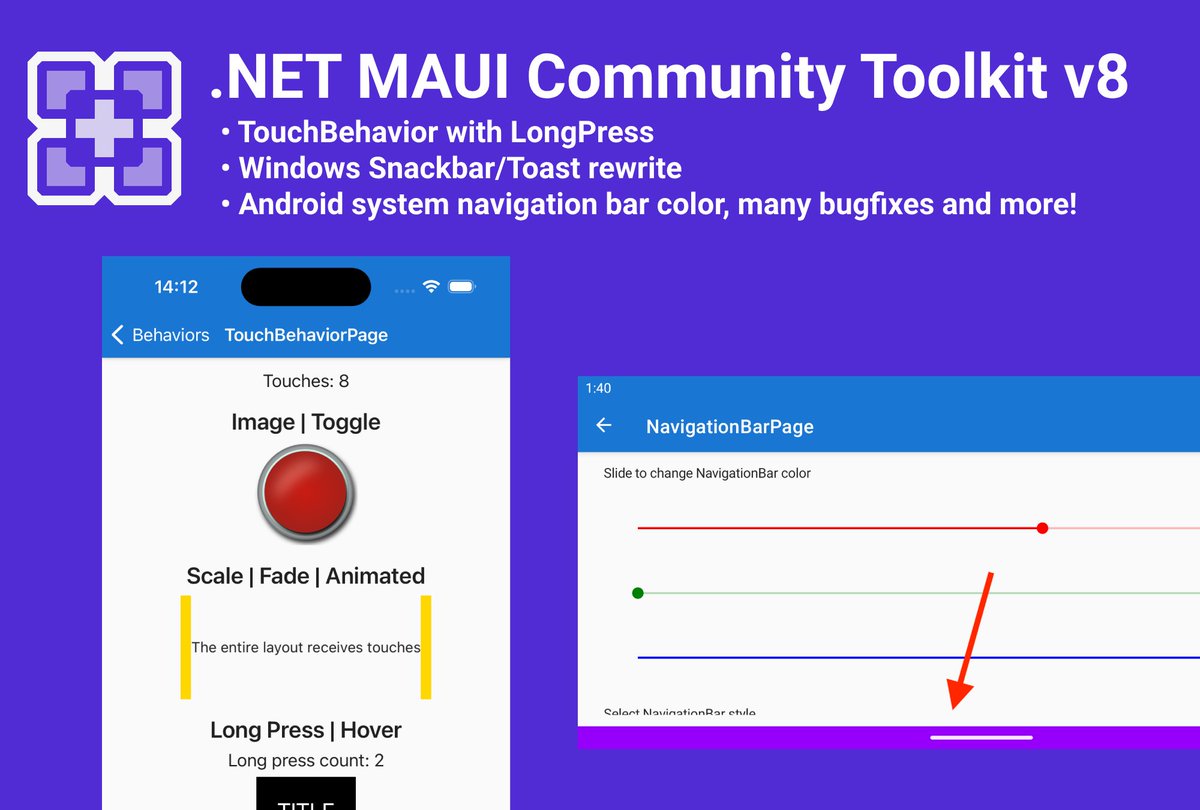
AI Chatbot with .NET
It is the age of artificial intelligence. AI is slowly changing the way we live and work, and AI’s popularity is driving adoption in enterprise and consumer apps. AI presents a huge opportunity for .NET developers to infuse apps with solutions powered by Generative AI and Large Language Models (LLMs). With modern .NET, there is plenty of help for developers, and James Montemagno produced a video to inspire—building an AI chatbot with OpenAI and .NET.
One of the fun ways to begin the AI journey is building a chatbot—.NET developers can easily leverage the power of OpenAI models and work with GPT-4 prompts. James shows off the developer experience in using .NET and Semantic Kernel to integrate with OpenAI models. One NuGet package and a few lines of code can stand up an AI-powered chatbot. Semantic Kernel greatly simplifies communicating with different LLMs, as well as offering plugins which are then easily invoked by models, support for responsible AI via filters and including instrumentation/metrics.
James pointed out the resources available to .NET developers wanting to infuse AI smartness and learn core concepts—like getting started with OpenAI with .NET, AI completions, tokenizations, prompt engineering and ChatGPT integrations. With the new .NET-AI quick starts, developers have full-blown integration examples of leveraging LLMs from OpenAI for interesting scenarios, like summarizing text, building chat apps or generating images. Modern .NET makes it easy to infuse smartness in apps, and developers have plenty of inspiration and tools to explore AI integration from .NET apps.
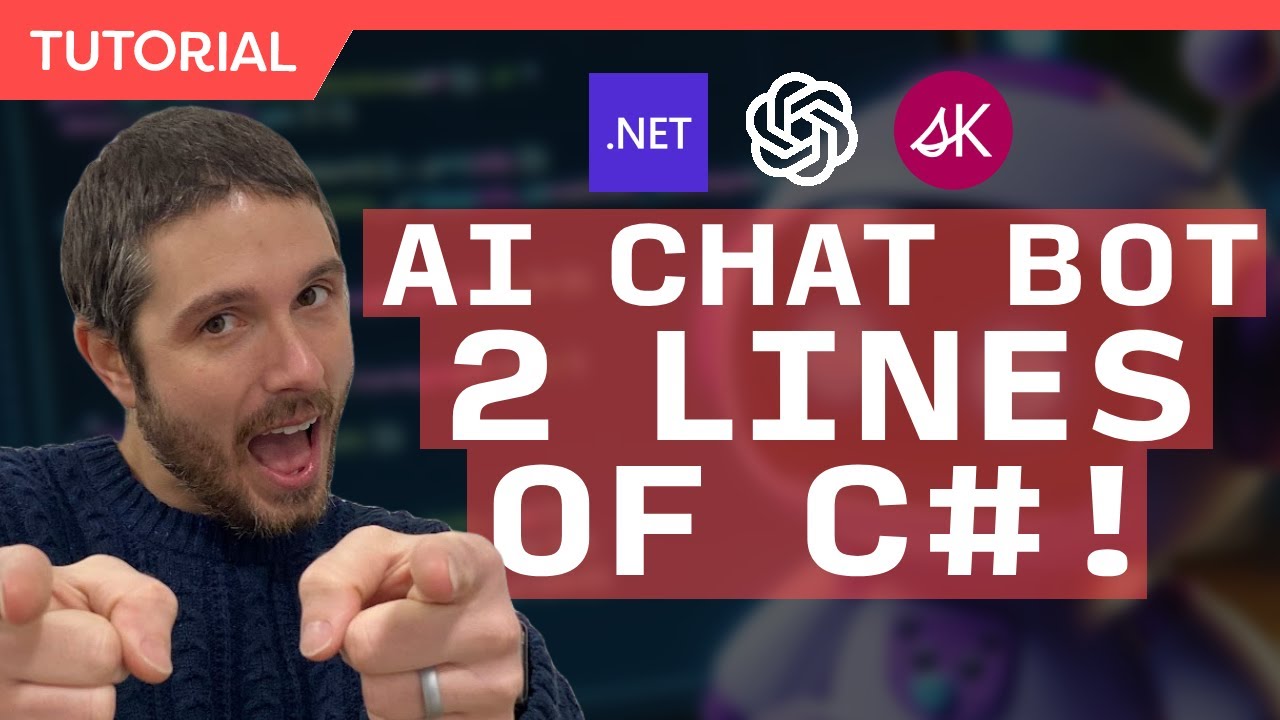
Uno Platform Release
It is a good time to be a .NET developer, with multiple choices in technology stacks that take .NET across various platforms. Uno Platform is the open-source framework for building single codebase native mobile, web, desktop and embedded apps—all from the comfort of chosen IDE and C#/XAML. Uno Platform just had a major release, with big implications for .NET ecosystem—say hello to Uno Platform 5.2.
Uno Platform 5.2 squarely focuses on developer productivity—the engineering love and care is evident in the release. Uno Platform 5.2 introduces a true Single Project solution, empowering developers with a unified approach across all nine platform targets, spanning mobile, web, desktop and embedded apps. This genuine Single Project approach simplifies development, accelerates build times and facilitates platform-specific development, while enhancing developer efficiency. The 5.2 Uno Platform release also adds enhanced Skia renderers for better performance, multi-window support, improvements to Uno.SDK and .NET 9 Preview support.
With added developer productivity in every release, Uno Platform is welcoming .NET developers to go cross-platform and enabling more options together with .NET MAUI—this is great for the .NET ecosystem.
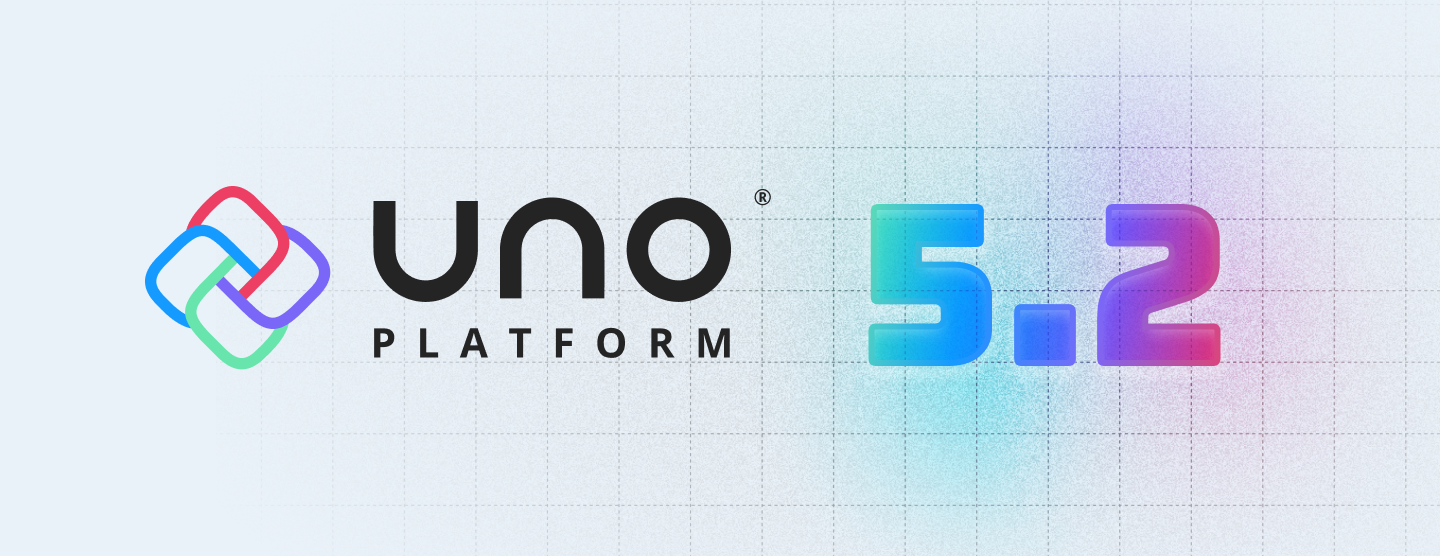
Apple Privacy Manifest Editor
Privacy matters. Modern app developers need to keep user data privacy a top priority—it is not only the right thing to do, but is also needed for compliance to regulations. Apple is introducing some stricter guidelines for managing privacy for iOS apps. This is true for any apps in the App Store and, naturally, affects cross-platform apps written with .NET MAUI. Thankfully for .NET developers, András Tóth is ahead of the curve—say hello to the new .NET MAUI Apple Privacy Manifest editor.
Apple is introducing a new privacy policy for including privacy manifest files in all apps targeted for iOS, iPadOS and tvOS platforms on the App Store—mandatory as of May 1, 2024. The Apple Privacy Manifest needs to be in the form of a PrivacyInfo.xcprivacy file that lists all types of data used/collected by apps and document usage of Required Reason APIs. This will all be surfaced to users with App Store listings. All .NET MAUI, Xamarin/Xamarin.Forms and .NET for iOS apps use some SDK pieces that will require privacy/reason declarations—but there is help for developers.
The .NET MAUI Apple Privacy Manifest editor tool is the comprehensive solution for effortlessly generating and editing Apple Privacy Manifest files. Designed with developers in mind, this VS Code Extension streamlines the process of creating accurate and compliant privacy manifests for iOS and macOS applications. Developers get to easily define and customize the data collection or usage practices in .NET MAUI apps, for transparency and compliance with Apple’s App Store privacy requirements. Folks targeting the Apple ecosystem with .NET apps can get started with the new privacy manifest requirement now—it is the requirement and there is tooling help toward building compliant .NET MAUI apps.

That’s it for now.
We’ll see you next week with more awesome content relevant to .NET MAUI.
Cheers, developers!

Sam Basu
Sam Basu is a technologist, author, speaker, Microsoft MVP and gadget lover. With a long developer background, he also worked as a Developer Advocacy Manager for advocating modern web/mobile/cloud development platforms on Microsoft/Telerik/Kendo UI technology stacks. His spare times call for travel, fast cars, cricket and culinary adventures with the family.

